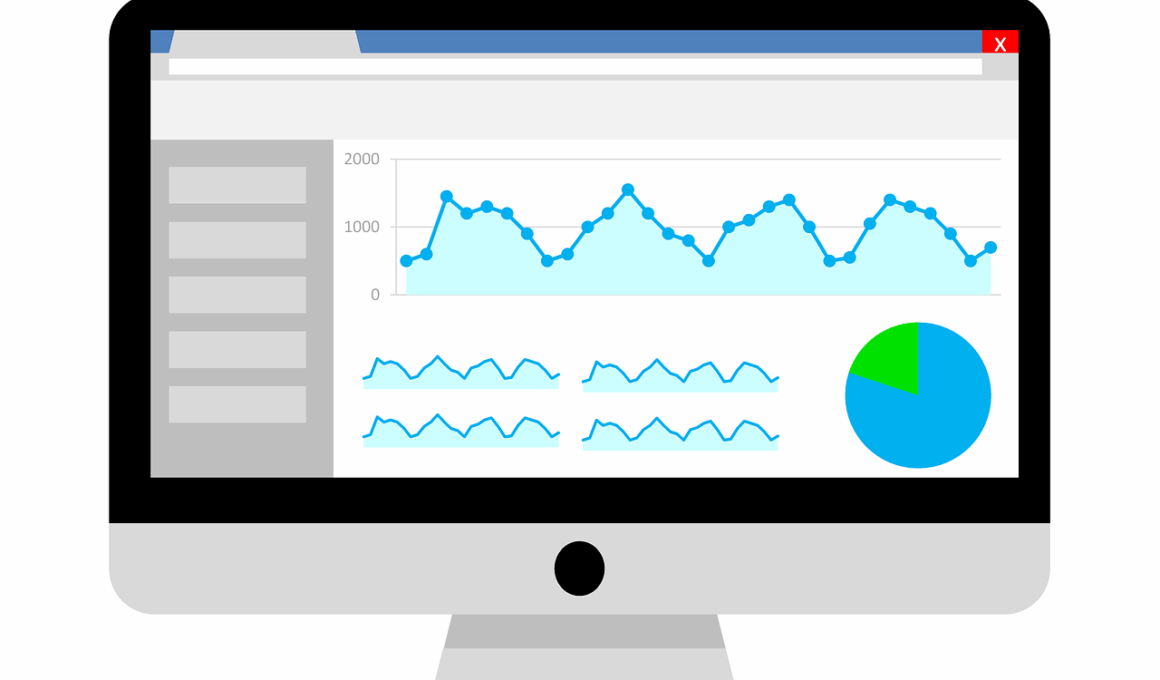Monitoring Your Website’s SEO Health with the Best Tools
In today’s digital landscape, understanding your website’s SEO health is crucial for maintaining competitive edge. With evolving search engine algorithms, the need for accurate information arises. Fortunately, there are numerous tools available on the market that help website owners monitor their SEO performance effectively. These tools can provide insights into site health, keyword performance, and backlink strength. They allow users to identify issues that could hinder rankings, such as broken links and slow loading speeds. Additionally, tracking changes in your SEO metrics can illustrate how adjustments impact your visibility over time. Among the most popular options are tools like Ahrefs, Moz, and SEMrush, each offering unique features. Selecting the right tool depends on your specific needs. Some users require deep keyword analysis, while others focus on backlink exploration. In any case, regularly assessing your website can empower you to make data-driven improvements, ensuring that your content remains relevant and easily discoverable by search engines. By investing in the right SEO tools, you’re actively taking steps towards enhancing your site’s performance.
When assessing SEO tools, it’s important to consider several key features that can significantly influence your monitoring efforts. Firstly, user-friendliness is paramount, especially for those new to SEO practices. Tools that do not require extensive training are preferred, as they save time and enhance productivity. A strong reporting feature is another essential, allowing users to easily visualize data. A good tool will furnish insights that can be shared among team members. Furthermore, real-time monitoring capabilities can alert you to significant changes in your site’s SEO metrics, enabling rapid response to issues. Tools with comprehensive keyword research functionalities are also beneficial. They can help identify new content opportunities while optimizing current pages. Analyzing competitor performance can provide a competitive advantage as well. Additionally, consider whether the tool offers integration options with other platforms, enhancing your workflow. Ultimately, selecting the right SEO tool hinges on understanding your goals and available budget. Thus, it’s advisable to take advantage of trial versions whenever possible to explore features without commitment.
Top SEO Tools to Consider
There are numerous SEO tools available that cater to a variety of needs. Here’s a brief overview of some of the top contenders optimizing your website’s SEO health. Ahrefs is renowned for its comprehensive backlink analysis and keyword research features, making it a favorite among SEO practitioners. SEMrush offers an all-in-one solution, including site audits, keyword tracking, and competitive analysis. For those focusing on local SEO, Moz Pro provides excellent tools for monitoring local listings and search performance. Google Search Console is another essential tool. It’s free, allowing you to monitor your site’s visibility in Google search results. Additionally, Ubersuggest offers a budget-friendly alternative, providing keyword suggestions and website auditing capabilities. Each of these tools has unique strengths that cater to different SEO strategies, so consider exploring them based on your requirements. To maximize results, combining features from multiple tools can provide a more comprehensive approach to managing your online presence.
Once you’ve selected the right tools for monitoring, the next step involves interpreting the data they provide effectively. Understanding key SEO metrics is essential for making informed decisions. For instance, monitoring metrics like organic traffic helps gauge the effectiveness of your content in attracting visitors. Click-through rates (CTR), measured by the frequency with which people click on your links, are also crucial for evaluating the effectiveness of your headlines and descriptions. Meanwhile, keeping an eye on bounce rates can indicate if users find what they expected after clicking through. Low engagement can suggest a need for content adjustments. Moreover, analyzing domain authority is also critical when assessing website performance over time. This numbers influence ranking potential. Periodically revising your strategies based on data insights can enhance outcomes. By remaining agile and informed with accurate data interpretation, you’ll be better equipped to prioritize adjustments, ultimately driving your site towards higher search engine rankings.
Implementing Changes Based on Data
Implementing changes based on the insights derived from monitoring tools is crucial for improving your website’s SEO health. After analyzing pertinent data, identify actionable items that can help address shortcomings. For example, if keyword optimization appears insufficient, consider revisiting existing content to naturally integrate high-performing keywords. Alternatively, if site loading speed is a concern, initiate measures to optimize images, scripts, or server response times. Additionally, enhancing internal linking structures can boost SEO by creating a better user experience. Regularly updating content can signal relevance to search engines, fostering improved rankings. Collaboratively, conduct audits focusing on key metrics to assess the impact of each modification made. Document changes and performance shifts for future reference. SEO is not a one-time effort; it involves an ongoing process relying on continuous monitoring and adjustment. Additionally, ensure you stay updated on industry trends and algorithm changes, as these will influence your overall strategy. Remain committed to implementing evidence-backed changes, resulting in a healthier, better-performing online presence that attracts both users and search engines.
In conclusion, actively monitoring and maintaining your website’s SEO health is an ongoing endeavor that yields impressive results when approached methodically. The tools available today provide invaluable insights into various aspects of performance, allowing users to make strategic decisions. By focusing on user experience, optimizing for relevant keywords, and leveraging analytics effectively, your website can rank higher on search engines. Moreover, continuous learning about SEO best practices will significantly enhance your strategies. Engage with community forums and stay abreast of digital marketing developments. Collaborating with like-minded professionals can also offer new perspectives and ideas. Remember, excellent SEO results do not happen overnight; they require continual effort and adjustment based on comprehensive insights derived from the best tools available. Embrace a data-driven mindset, utilizing these tools to uncover new opportunities while fine-tuning existing strategies. As the digital landscape continues evolving, staying proactive in monitoring your SEO health will only enhance your website’s potential to engage users and convert traffic effectively. Therefore, take control of your SEO journey today and reap the rewards tomorrow.
Final Thoughts on SEO Monitoring
Monitoring your website’s SEO health is paramount for achieving long-term success in the digital world. Investing in the right SEO tools not only helps identify potential issues but also provides strategies to enhance visibility and ranking. With so many options available, choosing tools that align with your unique requirements can make a significant impact. Always ensure to take the time to familiarize yourself with the functionalities of these tools. Don’t hesitate to explore trial versions that many options offer before committing to a subscription. Remember that SEO is a continual journey, where consistency and strategic evaluations lead to success. The insights acquired through these monitoring tools can guide your content strategies and impact overall website engagement. Create a consistent schedule for audits, keeping your hand on the pulse of changes within your SEO metrics. By staying informed and flexible, you can adjust strategies proactively. Personalize your approach to fit your specific business goals. In the end, sound monitoring of your website’s SEO health will cultivate a flourishing online presence that thrives through changing times.
Additionally, one should not underestimate the importance of SEO analytics in relation to website performance. SEO analytics serve as the backbone of monitoring initiatives, providing critical data that informs your tactics and decision-making. They reveal how your SEO strategies are not just technically effective but also resonate with the target audience. By analyzing factors like organic traffic trends and user behavior, you gain insights into what types of content are working and which are not. This information can help refine your content marketing strategies and promote readership growth. Regularly engaging with SEO analytics allows you to identify seasonal variations and fluctuations in your site’s performance. Ultimately, richer data leads to better decisions, demonstrating the impact of analytical tools on achieving overarching digital marketing objectives. Taking the time to establish a focused and comprehensive approach to SEO monitoring will create a robust framework for decision-making. Remember that each modification you make in response to the insights gleaned is an enhancement towards ensuring superior site performance and user engagement. In conclusion, robust SEO monitoring will significantly elevate your online efforts.


